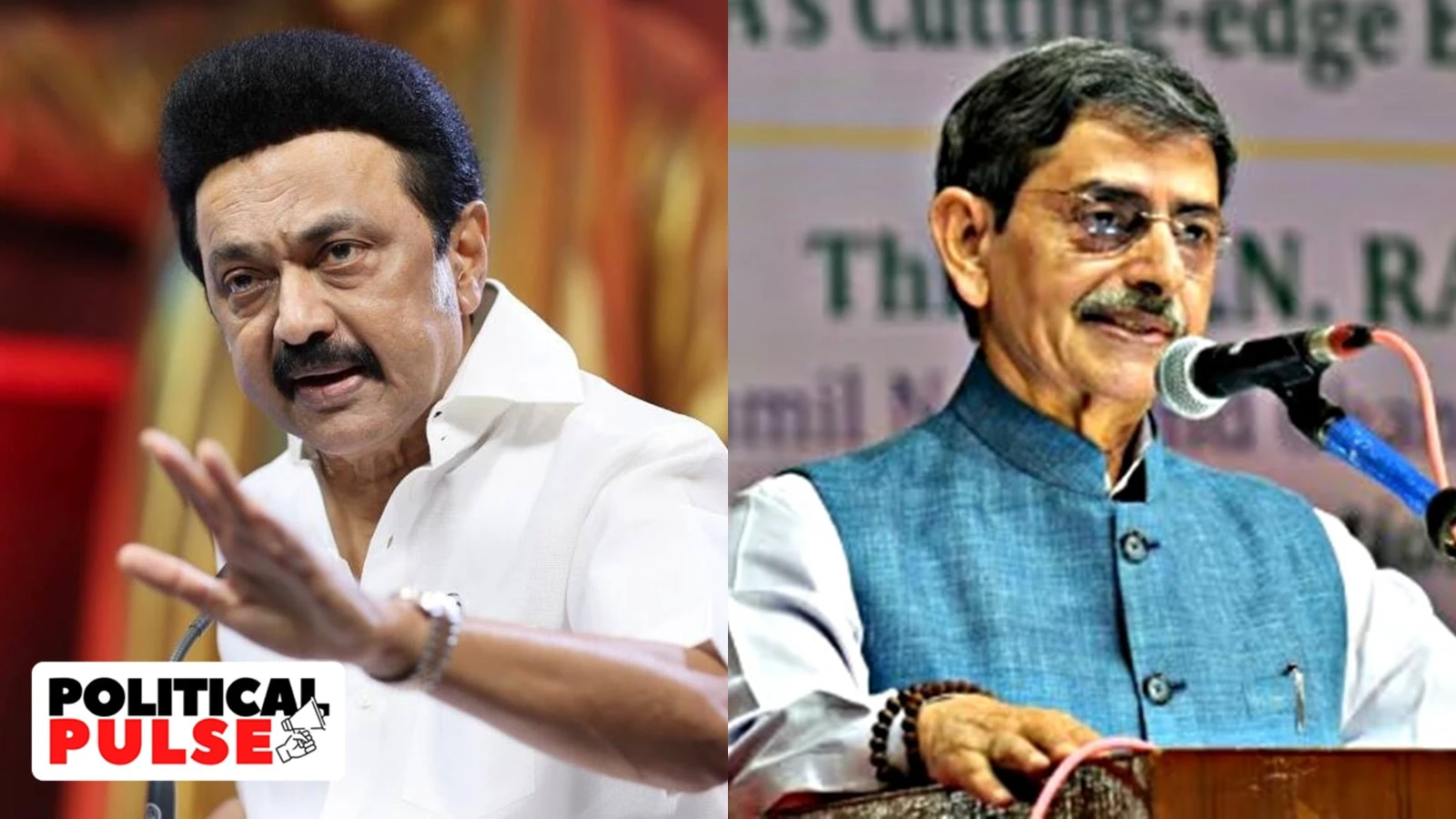In a striking rebuff to Tamil Nadu Governor R N Ravi, only a fraction of the state’s university leadership turned up at the annual vice-chancellors’ conference organised by Raj Bhavan in Ooty on Friday, despite a wide net of invitations and weeks of preparation.
The two-day conference of state, central, and private universities in Tamil Nadu, held at the Raj Bhavan campus in Ooty, was inaugurated by Vice-President of India Jagdeep Dhankhar.
Of the 56 heads of higher education institutions who were invited-including five central universities, 20 state universities, four central institutions, and 27 private universities-just 18 attended, according to top sources in Tamil Nadu Raj Bhavan.
Of those, only two were from state universities, and even these were not vice-chancellors themselves but stand-in representatives: the director of the research department at the Periyar University, deputed due to the vice-chancellor’s “other commitments”; and a college principal attached to Alagappa University’s physical education department.
The rest of the modest gathering comprised 16 representatives from central and private universities and institutions. The vast majority-34 state and private university heads-simply stayed away, a fact Raj Bhavan officials attributed to “unknown reasons.”
Asked about the poor turnout, the Raj Bhavan official told The Indian Express: “They were all absent for unknown reasons.” Another official said “all VCs had attended these conferences in the last two years” and that “this was the poorest turnout for the event since it began in 2022”.
The conference, which was billed as an annual event aimed at fostering academic dialogue and innovation among Tamil Nadu’s universities, has instead become the latest flashpoint in the long-running tussle between the Dravida Munnetra Kazhagam-led state government and the Raj Bhavan. This year’s dismal attendance comes in the wake of a bruising Supreme Court setback for the governor over his role in university affairs and mounting political backlash to what critics say is a “counter-conference” organised to undermine Chief Minister M K Stalin.
Facing widespread scrutiny and accusations of a “power struggle” with the elected government, Raj Bhavan issued a press release two days before the event to dismiss “misleading media reports” as “entirely erroneous and mischievous”. The statement insisted that the conference was “carefully planned and organised in April every year since 2022” and described it as a “well intentioned academic exercise with aim to achieve excellence in teaching, learning, innovation and enterprise”.
“It is unfortunate that some ill-informed media reports have given this well-intentioned academic exercise a political twist, wrongly linked it with the recent Court judgment and tried to project it as a power struggle between Raj Bhavan and the State Government. These are scandalous and far from the truth,” the press note read.
Planning for the conference began in January, with several rounds of meetings to identify topics, select resource persons, and ensure participation by eminent figures from academia and industry across the country. Despite those efforts, the numbers told their own story.
A VC who is attending the conference said there were “many absentees, and hurried calls and search for substitutions.” The no-shows, particularly by heads of state-run universities, were notable: of 20 state universities invited, not a single vice-chancellor attended. Raj Bhavan sources confirmed that, for the first time in three years, the annual conference had failed to draw any meaningful state university participation.
Private universities, historically less involved in the tussle between Raj Bhavan and the government, accounted for most of those present-though several prominent institutions were confused about sending their top leadership.
The absences come against the backdrop of a similar conference called by Chief Minister M K Stalin, a week earlier, which was widely-attended conference of vice-Chancellors and registrars at which the government asserted its new authority over universities, following a historic Supreme Court judgment that curbed the Governor’s powers to stall or withhold Bills passed by the state Assembly.
There was also an explicit call by Left parties for state university vice-chancellors to boycott the governor’s conference. Communist Party of India (Marxist) state secretary P Shanmugam had publicly described the governor’s event as “contempt of the Supreme Court verdict” and a “gross violation of constitutional norms”. The CPI’s R Mutharasan similarly warned that the participation of Vice President Jagdeep Dhankhar-who had been invited-would “undermine constitutional authority in the state.”
Poor turnout at the governor’s event is seen as a sharp repudiation following the Supreme Court’s April 8 ruling, which found the governor’s withholding of assent to 10 key university Bills “illegal and erroneous”. The Acts, which transferred appointment powers for vice-chancellors from the governor to the state government, were immediately notified and implemented by the Stalin government. The Governor’s subsequent moves-including the Ooty conference and an invitation to vice-president Dhankhar-were quickly labelled by critics of governor within the Bharatiya Janata Party and its ideological mentor Rashtriya Swayamsevak Sangh (RSS) as attempts to “stage a counter-conference” and “undermine the verdict”, feeding into the DMK’s campaign against what it calls “Delhi’s overreach.”
